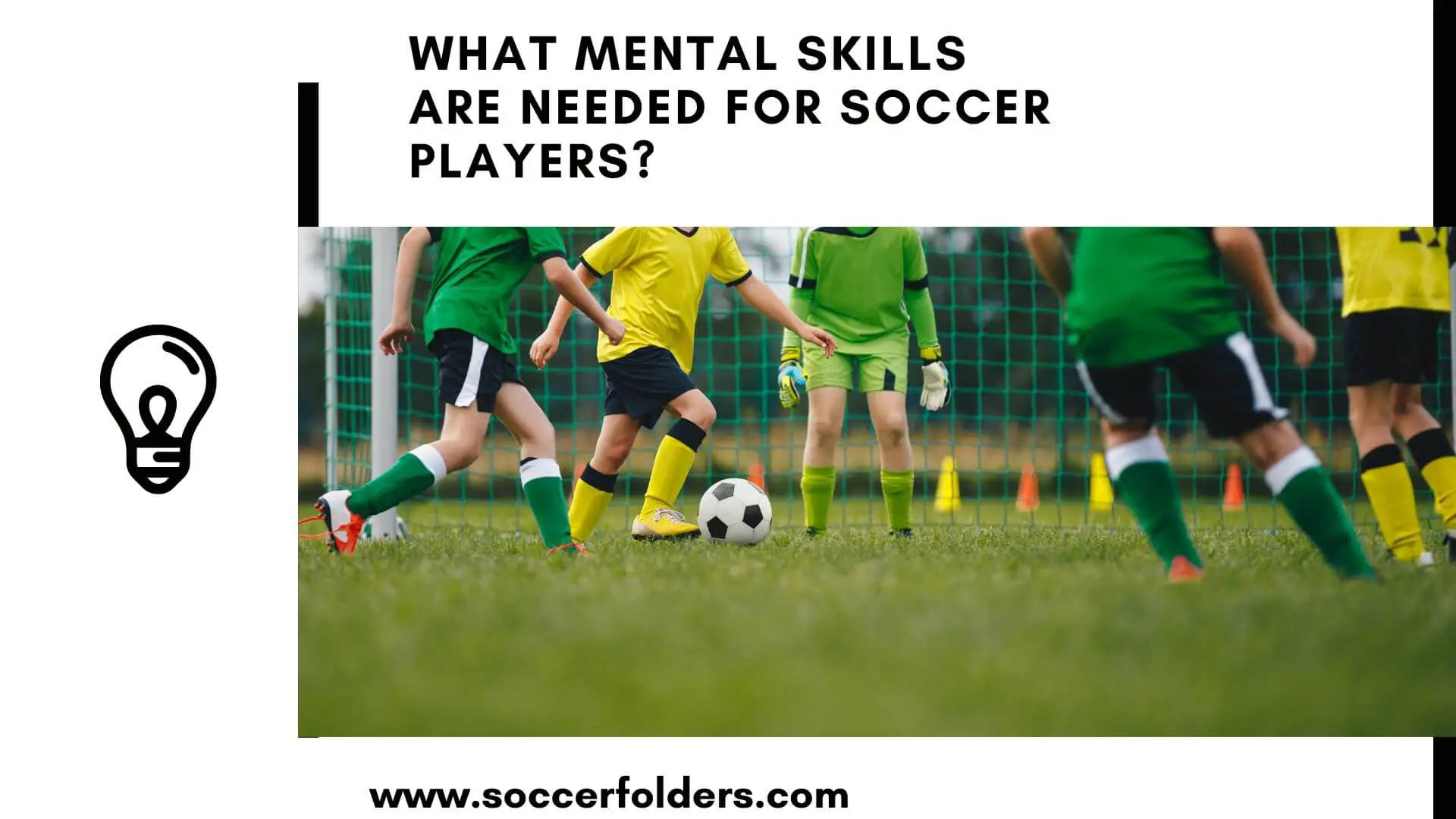Soccer, also known as “football” in many countries, is not only physical but also mental toughness.
Whether you are a player, coach, or parent, it’s important to understand the mental skills that are crucial for success in soccer.
In this article, we’ll take a closer look at the top mental skills every soccer player should cultivate to perform at their best on the field.
Let’s get started.
What Mental Skills are Needed for Soccer?
In soccer, players need to develop various mental skills to perform effectively and efficiently on the field. Some of these skills include:
- Concentration: The ability to focus on the game, tune out distractions, and maintain attention throughout the match.
- Decision Making: Quickly evaluating situations and making split-second decisions to determine the best course of action.
- Visualization: The ability to imagine and anticipate future events, such as the trajectory of a pass or the movement of a defender.
- Confidence: Believing in oneself and one’s abilities, and having the self-assurance to take risks and make decisions under pressure.
- Resilience: The mental toughness to bounce back from setbacks, overcome adversity, and maintain focus in challenging situations.
- Mental Toughness: The ability to withstand stress and pressure and remain composed in high-pressure situations.
- Game Intelligence: Understanding the flow of the game, recognizing patterns and making quick, effective decisions based on this knowledge.
1. Concentration
Concentration is a critical mental skill in soccer as it allows players to focus on the game and tune out distractions.
In soccer, many distractions can break a player’s concentration, such as the noise from the crowd, the opposing team’s tactics, and the physical demands of the game.
A player with strong concentration skills can maintain focus throughout the game, avoid making mental errors and execute their moves with precision.
2. Decision Making
Soccer is a fast-paced sport that requires players to make split-second decisions.
Whether it’s choosing whether to pass the ball or take a shot, or deciding which position to defend, a player’s decision-making abilities can have a big impact on the outcome of the game.
A player with good decision-making skills can quickly evaluate a situation and make the best possible choice, helping them to stay ahead of the competition.
3. Visualization
Visualization is a mental skill that allows players to imagine and anticipate future events.
By visualizing the trajectory of a pass, the movement of a defender, or the placement of a shot, players can improve their performance and increase their chances of success on the field.
Visualization also helps players develop a better understanding of the game and increase their tactical awareness.
==>>Also read my complete article about soccer visualization techniques.
4. Confidence
Confidence is a vital mental skill in soccer as it allows players to believe in themselves and their abilities.
A player who lacks confidence is more likely to hesitate, make mistakes, and struggle to perform well.
On the other hand, a player who is confident in their abilities is more likely to take risks, make decisions under pressure, and perform at a higher level.
==>>Also read: How to gain confidence in soccer?
5. Resilience
Resilience is the mental toughness that allows players to bounce back from setbacks, overcome adversity, and maintain focus in challenging situations.
In soccer, setbacks are inevitable, whether it’s losing a game, getting injured, or making a mistake.
A resilient player can stay focused and motivated, even in the face of adversity, and continue working towards their goals.
6. Mental Toughness
Mental toughness is the ability to withstand stress and pressure and remain composed in high-pressure situations.
The pressure is high in soccer, whether it’s a critical game, a penalty shoot-out, or a one-on-one situation with the goalkeeper.
A player with strong mental toughness can handle these pressures and perform at their best when it matters most.
==>>Also read mental toughness in soccer
7. Game Intelligence
Game intelligence is the understanding of the flow of the game, the recognition of patterns, and the ability to make quick, effective decisions based on this knowledge.
A player with good game intelligence can anticipate the movements of their opponents, make smart decisions on the field, and improve their overall performance.
Final Word
The mental skills needed for soccer are numerous and critical for success on the field. Whether you’re a player, coach, or parent, it’s important to understand these mental skills and help develop them in your athletes.
By focusing on building concentration, decision-making, visualization, confidence, resilience, mental toughness, and game intelligence, any soccer player can improve their performance, increase their confidence, and become more successful in their careers.
Coaches can help develop these mental skills in their players through a variety of methods, including visualization exercises, decision-making drills, mental toughness training, and performance-based feedback.
Additionally, parents can encourage their children to develop these mental skills by fostering a positive attitude, providing support and encouragement, and creating a supportive and challenging environment for their children to grow and develop.
Overall, the mental skills required for soccer are just as important as physical skills.
So start working on your mental skills today, and take your soccer game to the next level!
I hope you found this article informative and helpful in your quest to understand the mental skills needed for soccer.
You can also have a look at my e-book mental training exercises for soccer players here.


